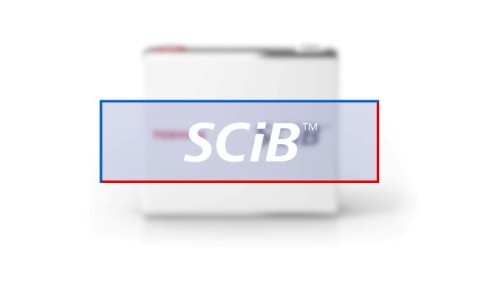SCiB™, optimizing battery systems from a product lifecycle perspective
Technology / Service Summary
SCiB™ helps reduce fuel consumption and CO₂ / NOx emissions and life cycle costs, improves operating rates and enables the construction of highly safe and reliable battery systems.
Purpose
SCiB™ rechargeable battery using lithium titanium oxide (LTO) in its anode, which is unique from conventional lithium-ion batteries, has excellent characteristics such as high safety, long life and rapid charging, optimizing the lifecycle cost through efficient use of energy.
Feature
Six outstanding features
(1)Extremely low risk of fire or explosion
(2)Cycle life of 20,000times or more
(3)Rapidly charges to about 80% of the capacity in 6min
(4)Usable even at -30℃
(5)Large current for both input and output
(6)Available SOC range of 0% to 100% (SOC: State of charge)
Effect
Applying the multiple advantages to EV buses, the number of buses and battery capacity can be reduced, thereby reducing lifecycle costs and resource consumption. When applied off-grid on remote islands, electricity can be utilized effectively and environmental impact can be suppressed.
As batteries play an increasingly important role, SCiB™ contributes to tackle social issues.
Controlled Substance
Applicable Regions / Countries
- Japan
- Southeast Asia
- Central/South Asia
- China/ East Asia
- Middle East
- Africa
- Oceania
- Europe
- Central/South America
- ASEAN countries
Indonesia,Cambodia,Singapore,Thailand,Philippines,Brunei Darussalam,Viet Nam,Malaysia,Myanmar,Lao PDR
Reference URL
Related SDGs Goals
- 7. Affordable and Clean Energy
- 9. Industry, Innovation and Infrastructure
- 12. Responsible Consumption and Production
- 13. Climate Action




